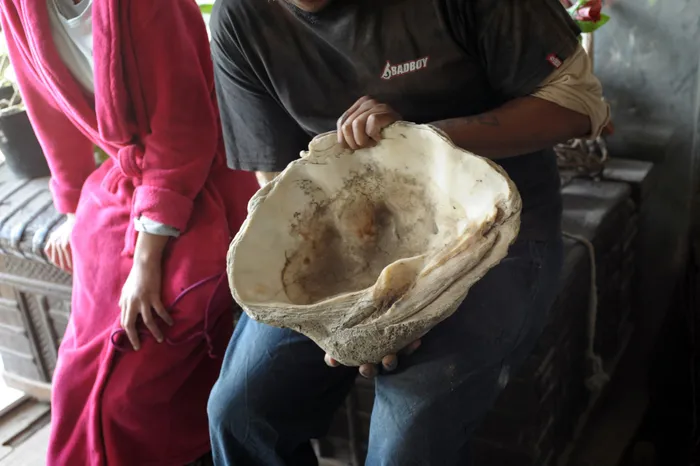
Cape Town - Children as young as nine in the impoverished community of Hangberg, Hout Bay, are engaging in sexual activity.
"They do these things, the girls of 9 and 12 years old, because they think that is how they can get money, or put food on the table," says Theresa Abrahams, a tough woman with a heart of gold.
Sitting on second-hand furniture her husband had reclaimed from dumps, in the raw concrete-floored lounge of their home in Hangberg, she laments at how the fabric of society is becoming unravelled.
"The girls don't know any better."
Drug abuse is rampant in this township, she says, and parents of young children are either too high, or too absent to guide their children along the right path.
"Children are raising children. They see what the adults do and they think they are also adults, so they want to do these adult things. And some of the men take advantage of that. They lure them in with promises of money and nice things.
"What I try to do is show them there is another way," she says.

A shell in the home of Theresa and Colin Abrahams. Picture: Armand Hough / African News Agency (ANA)
Unemployed and with little to nothing to offer, Abrahams gives of her time to ensure the children of Hangberg can attain what they deserve: the right to be children.
She and 14 helpers care for 72 Hangberg children, teaching them life skills, basic hygiene, and arts and crafts. It's her way of giving back.
They run an organisation called ' A place called home'.
"I'm not a registered social worker and this isn't a registered organisation. We're just a group of people who want to make the children feel wanted. That they can feel 'this is where I belong'.
"Some of the girls here, they wake up, just like that, and go about their day. They don't brush their hair, they don't wash, they don't brush their teeth, nothing. Then when the day is done, they climb just like that back into bed.
"We try to show them another way. No, you can't live like that. You must look after yourself. We teach them about sanitary towels, how to keep yourself clean and tidy, make sure you change your panty every day. Some girls go a whole week in the same underwear."
Abrahams relies on the good of the community to help her get by.
"We sometimes ask for donations. We go around, ask for a R20 here and a R50 there... but I don't want the people to look around and say ' nee, sy en Colin(her husband) vriet die geld op' (she and Colin are using the money for their own benefit), so I rather ask them to give us loaves of bread, or a tin of jam, or a jar of peanut butter, or panties, or pads, or soap..."
It saddens her that the recent protests, during buildings and cars were torched, would make it more difficult for her to seek donations from those in the area who are more well-off.
"How can I go back to them now, the rich people, the business people, and ask them for support? They can turn around to me and say 'look what you people did'. It's not fair. The criminals who do these things when our people are protesting legitimately, they are making us look bad."
The monetary donations she gets, she stretches far.
She took a group of 35 children on a camp in May. Some of them had never left the township before that.
"There was this boy, 10 years old, he's never seen a train. He cried. He thought it was a snake. These children have never even been outside their community. I just try to help them be children."

The view from inside Theresa Abrahams' home. Her husband, Colin, has been building their home for 30 years. Picture: Armand Hough / African News Agency (ANA)
She takes the children on as many field trips as her rudimentary fund-raising can afford, and everything she gets, she gives back to them.
"I always say to people, 'please just give what you can'. It doesn't have to be a Woolworths panty, it can be a Pep Stores panty, but it's a panty that one girl here doesn't have. And it will make such a big difference in their lives.
"Look here," she says, gesturing to ornaments and jewellery boxes made by some of the children, "they make this stuff and they are so proud of what they have done. If we aren't going to take notice of them and nurture their skills, who else is going to? We must try to show them there is another way.
"You don't have to sleep with an older man to get what you want.
"Crime doesn't pay. You ask the kids, 'what do you want to be when you grow up?', and they say: 'poachers'.
"That's the only life they know."
@LanceTheWitten
lance.witten@inl.co.za